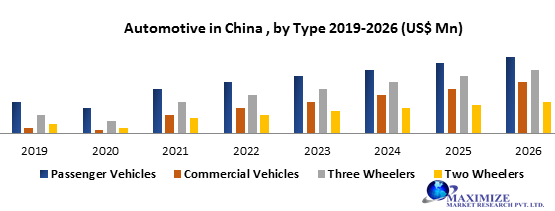BMW And Porsche's China Challenges: A Broader Industry Issue

Table of Contents
Intensifying Competition from Domestic Brands
The Chinese automotive landscape is rapidly evolving, with domestic brands making significant inroads into the market previously dominated by international players. This intense competition presents a major hurdle for BMW and Porsche.
Rise of Local EV Manufacturers
The rise of Chinese electric vehicle (EV) manufacturers is arguably the most significant factor. Brands like BYD, NIO, and XPeng are not only gaining market share rapidly but are also setting new technological benchmarks.
- Market share gains: Chinese EV brands are aggressively capturing market share, particularly in the crucial new energy vehicle (NEV) segment.
- Technological advancements: These brands are investing heavily in R&D, resulting in sophisticated battery technology, advanced driver-assistance systems (ADAS), and innovative design.
- Government support: The Chinese government actively supports its domestic EV industry through subsidies, tax breaks, and favorable regulations.
This aggressive push allows Chinese EV brands to offer comparable or superior technology at significantly lower prices, directly challenging the pricing power of established luxury brands like BMW and Porsche. Their strong focus on digital infrastructure, including extensive charging networks, further bolsters their appeal.
Sophisticated Marketing Strategies of Domestic Competitors
Beyond technological prowess, Chinese domestic brands employ highly effective marketing strategies tailored to the local market. They understand the nuances of Chinese consumer behavior and leverage digital channels masterfully.
- Social media dominance: Chinese social media platforms like WeChat and Weibo are central to their marketing campaigns, fostering direct engagement with consumers.
- Influencer marketing: Collaborations with key opinion leaders (KOLs) and social media influencers are heavily utilized to build brand awareness and trust.
- Targeted advertising: Sophisticated data analytics allow for precise targeting of specific consumer segments, maximizing campaign effectiveness.
This contrasts sharply with the often more traditional marketing approaches adopted by international brands, which sometimes struggle to resonate with the digitally native Chinese consumer.
Shifting Consumer Preferences in China
The preferences of Chinese consumers are evolving rapidly, demanding significant adaptation from international brands. Meeting these new expectations is critical for survival in this competitive market.
Demand for Advanced Technology and Features
Chinese consumers exhibit a strong preference for cutting-edge technology and features in their vehicles. This goes beyond basic luxury; it’s about advanced functionalities that enhance the driving experience and reflect a technologically sophisticated lifestyle.
- Autonomous driving features: Self-driving capabilities and advanced ADAS are highly sought-after.
- Connectivity: Seamless integration with smartphones and smart home ecosystems is crucial.
- Personalized features: Customization options and features that cater to individual preferences are highly valued.
Compared to Western markets, where reliability and brand prestige often take precedence, the Chinese market prioritizes technological innovation and seamless integration with the digital landscape. BMW and Porsche must adapt their offerings to meet this demand.
Growing Focus on Sustainability and Environmental Concerns
Environmental awareness is growing rapidly in China, leading to a significant increase in demand for electric and hybrid vehicles. This trend is further fueled by government regulations promoting the adoption of NEVs.
- Government regulations: Stringent emission standards and incentives for EV purchases are driving the shift towards sustainable mobility.
- Consumer preference: Chinese consumers are increasingly conscious of their environmental footprint and are actively seeking eco-friendly brands and models.
This shift dramatically impacts the sales of traditional combustion engine vehicles from BMW and Porsche, requiring them to accelerate their electrification strategies and expand their range of EV offerings to remain competitive.
Economic and Geopolitical Factors
Beyond market-specific challenges, broader economic and geopolitical factors significantly impact the performance of international automakers in China.
Economic Slowdown and its Impact
Economic slowdowns and uncertainties can have a significant impact on luxury car purchases, as these are often considered discretionary spending.
- GDP fluctuations: Slowdowns in China's GDP growth directly affect consumer confidence and spending habits.
- Changing consumer confidence: Uncertainty in the economic outlook often leads consumers to postpone major purchases like luxury vehicles.
These fluctuations directly impact the pricing strategies and sales volumes of premium brands like BMW and Porsche, forcing them to navigate a more volatile market environment.
Geopolitical Tensions and Trade Relations
Geopolitical tensions and fluctuating trade relations between China and Western countries introduce further complexity and risk to the automotive industry.
- Tariff implications: Trade disputes can lead to tariffs and increased import costs, impacting the profitability of imported vehicles.
- Supply chain disruptions: Geopolitical instability can disrupt global supply chains, affecting the production and delivery of vehicles.
- Political risks: Uncertain political relations can create an unstable business environment, discouraging investment and impacting long-term planning.
These factors significantly affect the operations and profitability of international automakers like BMW and Porsche, highlighting the need for robust risk management strategies and diversification.
Conclusion
BMW and Porsche's challenges in the Chinese market are multifaceted, encompassing intense competition from domestic brands, evolving consumer preferences prioritizing advanced technology and sustainability, and broader economic and geopolitical uncertainties. These challenges aren't unique to these two brands but represent a larger trend impacting the entire automotive industry operating in China. Understanding the evolving dynamics of BMW and Porsche's China challenges is crucial for anyone interested in the future of the global automotive industry. Further investigation into the strategies employed by successful international and domestic brands operating within this dynamic landscape is essential for navigating this complex and rapidly changing market.

Featured Posts
-
 Stallones Behind The Camera Misfire A Look At His Unsuccessful Directorial Debut
May 11, 2025
Stallones Behind The Camera Misfire A Look At His Unsuccessful Directorial Debut
May 11, 2025 -
 John Wick The Underrated Characters Long Awaited Return After A Decade
May 11, 2025
John Wick The Underrated Characters Long Awaited Return After A Decade
May 11, 2025 -
 Ou Placer Son Argent Un Apercu Des Differentes Options D Investissement
May 11, 2025
Ou Placer Son Argent Un Apercu Des Differentes Options D Investissement
May 11, 2025 -
 Hakimler Ve Savcilar Icin Iftar Programi Detayli Bilgi
May 11, 2025
Hakimler Ve Savcilar Icin Iftar Programi Detayli Bilgi
May 11, 2025 -
 The Untold Story Of Tom Cruises Reaction To Suri Cruises Birth
May 11, 2025
The Untold Story Of Tom Cruises Reaction To Suri Cruises Birth
May 11, 2025
